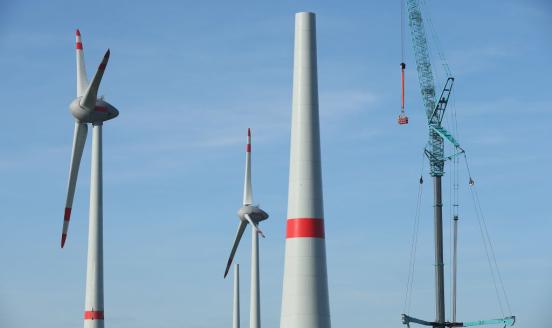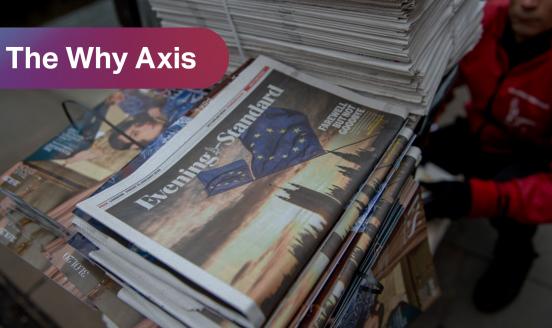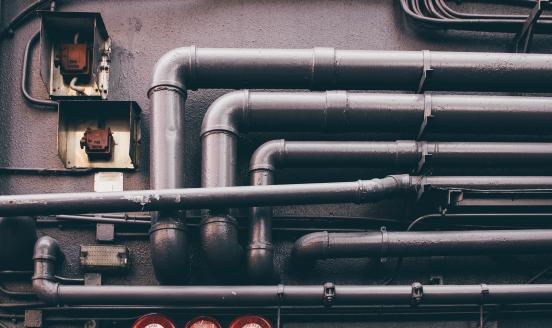The Renzi-Frenzy
If there’s a rule that Italian voters learn quickly, it’s never to trust provisional election results. They have a tendency to display spectacular rev
If there’s a rule that Italian voters learn quickly, it’s never to trust provisional election results. They have a tendency to display spectacular reversals, turning the most inflamed enthusiasms into the deepest sorrows and vice versa. In obedience to this wise predicament, most Italians must have mistrusted the first projections pointing to the striking result of PM Renzi’s Democratic Party (PD) in the 2014 European elections.
The final outcome comes indeed as a genuine surprise to many and shows a country that is radically different from both the Italy that voted in 2009 and the Italy that elected its national parliament one year ago. Turnout (around 60%) has decreased compared to the previous European elections, but it has been among the highest across all EU countries where voting is not compulsory. The Democratic Party (PD) – openly pro-European – earned 40.8% of the votes casted. This result is unprecedented in historical perspective, as no single party in the Italian political spectrum managed to score so high since 1958. It is also striking in a more contingent perspective, considering that only one year has passed since the national elections that marked a debacle for the previous PD leadership and opened the way to Mr. Renzi. Even more importantly – if seen from Brussels – the Eurosceptic Five Stars Movements, led by former comedian Beppe Grillo, loses about 2.5 million votes as compared to last year’s national elections and drops to 21% of the preferences casted, well below forecasts.
Beyond these raw numbers, some considerations come to mind. First, at the national level, the striking result of the Democratic Party accounts as a de facto endorsement of PM Renzi – who had not been elected – and of his reform project that aims at being radical. PM Renzi enjoys at present the privilege of an unprecedented legitimation and the challenge to meet expectations that are also at the highest level. To do so, he unquestionably needs to deliver on what he has promised.
Second, in Europe Italy has clearly chosen a pro-European side. This should not be underestimated, as it was not at all obvious before the elections. The electoral campaign has been fought by many on an anti-EU basis and the risk of a Eurosceptic drift was in fact substantial, but it has not materialised. This may partly be due to the attitude that Italians traditionally have vis-à-vis Europe. As previous analysis has shown, in Italy, confidence in the European institutions has decreased over time but the positive confidence gap between European versus national institutions has remained the largest since the start of the sovereign crisis.
Third, the contrast with neighbouring France, is striking. Two countries that are frequently compared in terms of economic indicators, France and Italy could hardly look more different in terms of preferences expressed vis-à-vis Europe. The victory of Marine Le Pen’s anti-EU Front National – which affirmed itself as the first party with an unforeseen 25% - is impressive, in a country that has been among the founding fathers of the European project. Coupled with Holland’s approval rating being in the doldrums, this electoral result could slow down the traditional Franco-German engine for European integration and prelude to a reassessment in the geography of alliances. In this process, Italy should play a role and put itself forward as a decided leader in the project of more European integration.
The Italian presidency - coming soon after these elections - would be the occasion to start this process. But to do so in an effective manner, the order of priorities and their feasibility should be clear. First of all, it must be realised that the EU rotating presidency has somewhat lost its lure, since the post of permanent president of the European Council – the institution that stirs the general political direction of the Union – was created. Moreover, six months are a very short time span, and August will be a quiet month in Brussels, while the EP will be on recess and the Commission might not have its team fully operational yet. With these caveats in mind, certain dossiers (here presented in no particular order) still can, and ought to be, pushed. The criteria used to identify them among many are threefold: salience, feasibility, and the credibility with which Italy can lead on them.
- Tackling migration: This is a dossier on which Italy can easily claim a strong stake. It is also salient, given the tense geopolitical situation in many EU neighbouring countries, and has been brought to the public’s attention by the disasters taking place around the island of Lampedusa. Finally, it falls under EU competence according to the Lisbon Treaty (art. 79 and 80 of the TFEU). All this ensures that important progress could be tabled during Italy’s presidency, ranging from a strengthening of FRONTEX to more coordination on asylum policy.
- Strengthening coordination on energy policy: Following the Ukrainian crisis and the escalation of sanctions with Russia, the importance of establishing a coherent energy policy for Europe has come to the fore. Moreover, energy policy falls under the EU’s remit, according to art. 194 of the TFEU. Measures could thus be initiated, with the idea of progressively moving towards a more integrated single European energy market, reducing the continent’s dependence on one unique supplier.
- Europe beyond crisis management: PM Renzi has often spoken of moving to a “Europe of the peoples and citizens, not made only of [budgetary] prescriptions”. Notwithstanding the admittedly vague nature of these statements, low voter turnout rates at the EU elections, coupled with the surge in Eurosceptic parties, often illustrate the loss of interest in or attachment for an organisation that is perceived as technocratic and far removed from the people and their everyday lives. With a strong pro-European backing, Renzi might want to push for measures aimed at rekindling a European sentiment and going beyond mere debates about austerity and structural reforms. The list of potential measures falling under this heading is endless. We note, however, that the PM has often made reference in the past to the establishment of a pan-European civil service.
- SME financing: Due to dysfunctions in the lending channel, small and medium enterprises in Italy (and Spain) appear to be heavily credit constrained. This, in turn, is holding back the economy from fully joining Europe’s nascent recovery. Work streams (involving also the EIB and the ECB) on this issue have been ongoing at EU level but little policy progress has been made. As such, Italy is well placed to accelerate a dossier which is already under discussion and obtain tangible results notwithstanding the time constrains of the presidency.
Finally, we turn to one of the most thorny issues, namely fiscal discipline. PM Renzi has been actively campaigning in the past months on the platform of softening Europe’s macroeconomic straightjacket (“we stick to the rules, which is why we want to change them”; “we want fiscal discipline but a new approach”), going beyond the dogma of the 3%. Although there is wide agreement of the fact that the Fiscal Compact, which was rammed through in the eleventh hour to shore up the euro area against financial panic, is excessively rigid, we would not recommend focusing too much political capital on this dossier. The reasons are manifold.
First, changing an inter-governmental treaty will require unanimity at the level of heads of state and government. This is all but warranted, as some countries see it as the only way to keep public expenditure under control in countries that have displayed profligate behaviours in the past. Second, with the second largest debt-to-GDP ratio in the EU and the fourth largest nominal debt pile in the world, Italy does not present itself as a credible impartial leader on this dossier and insisting on it could reduce its credibility also on other files. Third, as sub-optimal as it may be, the current fiscal governance framework has (at least temporarily) appeased markets. Watering it down, without a credible alternative being agreed, would not represent an improvement with respect to the status quo. A new European holistic economic governance framework is much needed but, in turn, it would require a new EU/inter-governmental treaty. Italy can try to ignite this process, but it will be out of the driver’s seat before any substantial decision is taken.
What could be pushed through instead at the European level is a new, more favourable, attitude towards public investment in the context of the European Semester, as hinted by the Italian prime minister in several occasions, and along the lines illustrated by past work conducted by Bruegel.
The outcome of the European elections (at home and elsewhere) paves the way for Italy to play an active role in Europe, focusing on those issues that are salient at the European level. The strong pro-European backing at home would provide legitimisation; a concrete advancement on the government's domestic reform programme would provide credibility; and the Italian rotating presidency would provide credible means to start this process. The combination of the three does not materialise often, it's a golden chance that should not be wasted.



